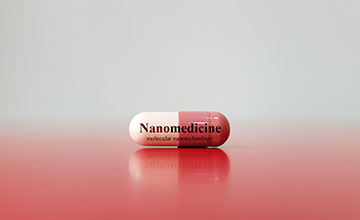Applications of Nanotechnology
Nanotechnology, a cutting-edge field of science, deals with the manipulation and control of matter on an atomic and molecular scale. The potential it holds for various industries, from healthcare to electronics, has led to significant advancements over the years.
Introduction to Nanotechnology
At its core, nanotechnology refers to the science, engineering, and application of materials with structures ranging between 1 and 100 nanometers. A nanometer is one-billionth of a meter, smaller than the wavelength of visible light. At this nanoscale, materials often exhibit unusual physical, chemical, and biological properties that differ from their bulk counterparts.
Nanotechnology can be applied to various fields, including medicine, electronics, environmental science, and more. By altering materials at such a fundamental level, nanotechnology opens doors to innovation that were previously unimaginable.


The History of Nanotechnology
Although the idea of manipulating matter on an atomic scale might seem modern, the history of nanotechnology stretches back to the mid-20th century. Richard Feynman, a physicist, is often considered the father of nanotechnology. In his famous 1959 lecture, "There’s Plenty of Room at the Bottom," Feynman discussed the potential of controlling individual atoms, which laid the conceptual groundwork for nanotechnology.
However, it was not until the 1980s that nanotechnology truly began to take shape as a field. The invention of tools such as the scanning tunnelling microscope (STM) and the atomic force microscope (AFM) enabled scientists to observe and manipulate matter at the nanoscale. These advancements in instrumentation set the stage for the rapid development of nanotechnology.
Uses of Nanotechnology
Nanotechnology’s applications are vast and span across multiple sectors. One of its most prominent uses is in healthcare. Nanomedicine, for instance, has revolutionized the way diseases are diagnosed and treated. Nanoparticles can be engineered to deliver drugs directly to diseased cells, improving the efficacy of treatments while minimizing side effects. Furthermore, nanoscale sensors can detect diseases at much earlier stages than conventional methods.
In the electronics industry, nanotechnology has enabled the production of smaller, faster, and more efficient devices. Transistors, the building blocks of modern electronics, are now made with nanoscale materials. This miniaturization has led to the creation of more powerful computers, smartphones, and other gadgets, all while reducing energy consumption.

Environmental science also benefits from nanotechnology. Nano-based filters and membranes are used in water purification systems to remove harmful contaminants, ensuring clean drinking water. Additionally, nanotechnology plays a role in creating more efficient energy storage systems, such as batteries and supercapacitors, which are critical for renewable energy solutions.
Other industries that have embraced nanotechnology include agriculture, textiles, and manufacturing. In agriculture, for example, nanotechnology is being used to develop more efficient pesticides and fertilizers, while in textiles, it is used to create materials that are stain-resistant, waterproof, or even capable of self-cleaning.
Advantages of Nanotechnology
The advantages of nanotechnology are numerous, with wide-ranging benefits for various sectors. One of the primary advantages is its ability to enhance product performance and functionality. For example, the introduction of nanomaterials into electronics has resulted in smaller, faster, and more efficient devices. In medicine, nanotechnology has led to more targeted drug delivery systems, minimizing side effects and improving patient outcomes.
Another significant benefit of nanotechnology is its potential to address environmental challenges. Nanomaterials can be used to develop more efficient energy storage systems, such as batteries and fuel cells, which are crucial for the transition to renewable energy sources. Additionally, nanotechnology can be employed in pollution control, with applications like nano-based filters for water purification and air quality improvement.
Nanotechnology also holds the potential to reduce manufacturing costs. By utilizing materials at the nanoscale, manufacturers can reduce waste, improve efficiency, and create lighter, stronger materials that require less raw material. This not only benefits the environment but also reduces production costs, making products more affordable for consumers.
One of the key benefits of antimicrobial paints is their durability. Unlike traditional cleaning methods that may require frequent application, antimicrobial paints provide long-lasting protection with minimal maintenance. This makes them a cost-effective solution for maintaining cleanliness over time.
Copper Nanotechnology in India: A Growing Field
Nanotechnology in India is an emerging field with substantial growth potential. Over the past decade, India has made significant strides in nanotechnology research and development, thanks to government initiatives and funding. Indian institutions, such as the Indian Institute of Science (IISc) and the Indian Institutes of Technology (IITs), are leading the way in nanotechnology research, focusing on applications in healthcare, agriculture, and renewable energy.
The Indian government has launched several programs to promote nanotechnology. The Nano Mission, initiated in 2007, aims to develop infrastructure, support research, and foster collaboration between academia and industry. Through these efforts, India seeks to become a global leader in nanotechnology, contributing to the development of innovative solutions that can address both domestic and global challenges.

In healthcare, Indian researchers are working on nanomedicine applications, such as targeted drug delivery systems and cancer treatments. In agriculture, nanotechnology is being used to develop smart pesticides and fertilizers that can improve crop yields and reduce environmental impact. Additionally, India's growing focus on renewable energy has led to the exploration of nanotechnology in developing more efficient solar cells and energy storage systems.
The Future of Nanotechnology: What's Next?
The future of nanotechnology promises even more groundbreaking advancements as researchers continue to explore its potential. One of the most exciting prospects is the development of nanobots—microscopic robots that can be programmed to perform tasks at the cellular level. These nanobots could revolutionize medicine by performing surgeries, repairing tissues, or delivering drugs directly to specific cells, all without invasive procedures.
Nanotechnology also holds promise in the field of artificial intelligence (AI). By creating smaller, more efficient computing systems at the nanoscale, researchers aim to develop AI systems with enhanced processing power, energy efficiency, and capabilities. This could lead to advancements in autonomous vehicles, robotics, and data analysis, impacting various industries from manufacturing to healthcare.
In the energy sector, nanotechnology could play a crucial role in addressing global energy demands. Nanomaterials are already being used to create more efficient solar panels and energy storage devices. As this technology evolves, we may see the development of energy systems that are more sustainable, cost-effective, and capable of meeting the needs of a growing global population.
Moreover, nanotechnology has the potential to address global environmental challenges. Researchers are exploring ways to use nanomaterials to develop more efficient methods for carbon capture and storage, as well as for reducing pollution. In the future, nanotechnology could become a key tool in the fight against climate change.
As India continues to invest in research and development, and global advancements in nanotechnology progress, the potential for innovative solutions will only continue to grow. The future of nanotechnology is not just promising—it is transformative, with the power to revolutionize the way we live, work, and interact with the world around us.

